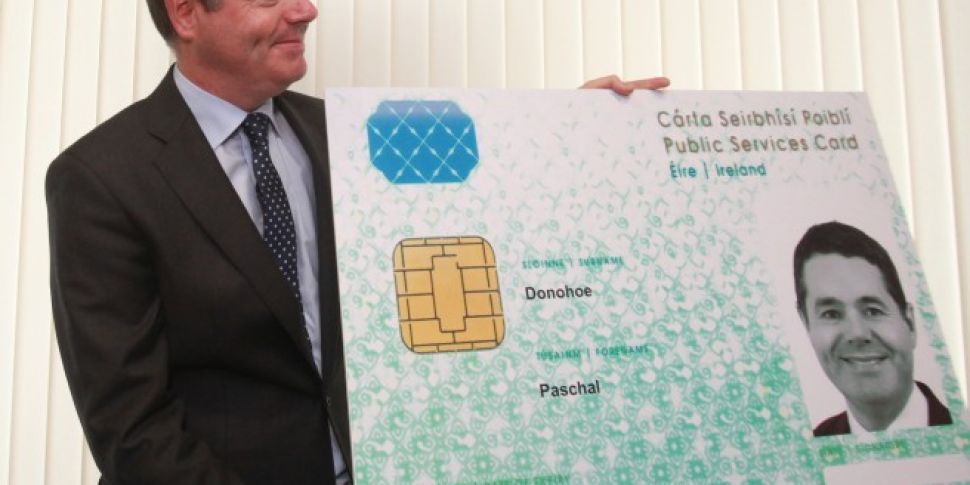The Government has denied claims it is attempting to make it compulsory for citizens to have a Public Services Card – despite the fact that it will soon be required to apply for a passport.
Privacy campaigners have claimed the plan to make the card compulsory for anyone applying for a drivers licence or passport amounts to the introduction of “national ID card by stealth.”
The passport application requirement is set to be introduced in the autumn, while applicants for driver’s licences will need to have one by next year.
Public Expenditure Minister Paschal Donohoe has insisted it “is not and will not be” mandatory to have a PSC card – but Daragh O’Brien, managing director of Castlebridge Data Protection and Data Governance is not convinced:
“If you require it in order to get a driver’s licence in order to get to work, or to get a passport in order to go on holidays with your family, then it is mandatory – even if the state is saying otherwise,” he said.
He told Newstalk Breakfast that while he can see benefits to a national ID card system, it cannot be introduced “by stealth, without appropriate debate and transparency.”
The PSC card was rolled out in on a pilot basis in 2011.
It was initially issued to social welfare recipients – with the Department of Social Protection threatening anyone who refused to obtain the card with a suspension of payment.
The card has now been issued to over 2.5 million Irish citizens.
Tool of petty harassment
The head of civil liberties group Digital Rights Ireland, TJ McIntyre, told The Pat Kenny Show that he has concerns over the manner in which the card is now being rolled out to the rest of the population.
“People have been apparently, in some cases, randomly required to register even though they are not within the formal schemes that require people to register,” he said.
“In other cases, perversely they have been sending out cards to people who haven’t applied for them and don’t want them.”
While many European countries require their citizens to carry a mandatory national ID card, Mr McIntyre warned that they have the "potential to be used a tool of petty harassment."
“In France as a middle-aged white man, you might find it slightly easier to move around and not be asked for your ID that much,” he said.
“As a young black or Arab man in the Parisien Banlieu you might find yourself asked for ID in a slightly more harassing manner more often by police.”
You can listen back to Mr McIntyre's conversation with Pat Kenny here:
Mr O’Brien warned Newstalk Breakfast that the card will require a “quite large” amount of data sharing between government departments – adding that under a 2015 ruling from European Court of Justice, no personal data can be shared between public bodies unless the citizen in question is informed first.
"I'm not sure what the Government's difficulty is in enshrining this in law,” he said. “But what they are trying to do is introduce an umbrella data sharing bill to give state agencies a carte blanche to share data on a broad basis.”
"That's an attempt to get around the Data Protection Act requirements under EU law.
"If the sharing is important and has a valid purpose - and is valuable for the state and the citizen - then surely it should be put on the strongest foundation possible by making sure it is being done in the most transparent and appropriate way."
National security
In a statement this morning, Minister Donohoe claimed that the ID cards are in the best interest of Ireland’s national security.
"Government has an obligation to deploy the most robust means of online and physical identity verification possible to ensure that it is doing all it can to reduce fraud, impersonation and the risk of identity theft in the delivery and accessing of public services," he said.
The minister is hopeful he will be able to get his new Data Sharing and Governance Bill passed this year – before the EU General Data Protection Regulation (GDPR) comes into force in May 2018.
A draft version of the bill is due for debate in the Oireachtas Committee on Finance tomorrow.
Mr O’Brien said that “done right, it could be a very good thing” but warned there is “an incredible lack of controls and transparency” in the legislation as it stands.
You can listen back to Mr O'Brien's full appearance on Newstalk Breakfast here:









